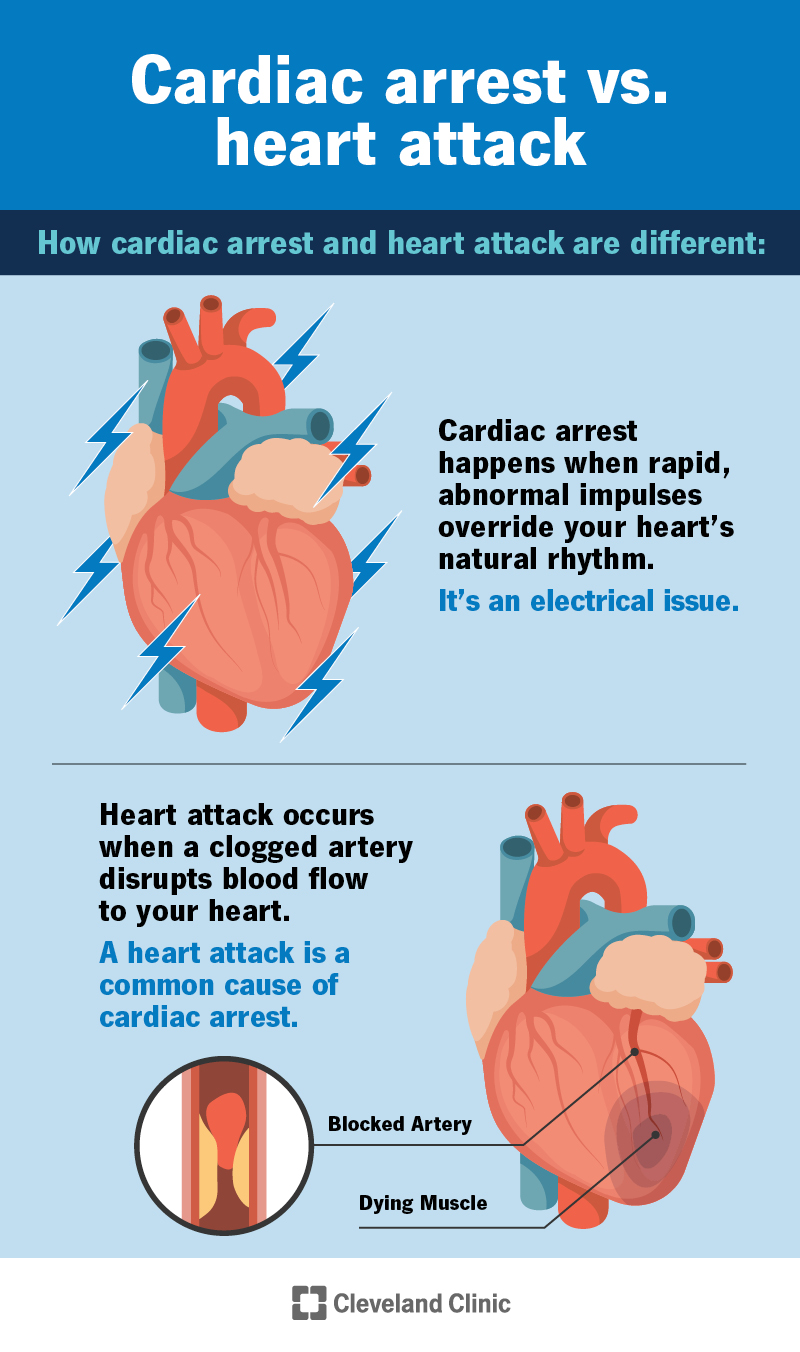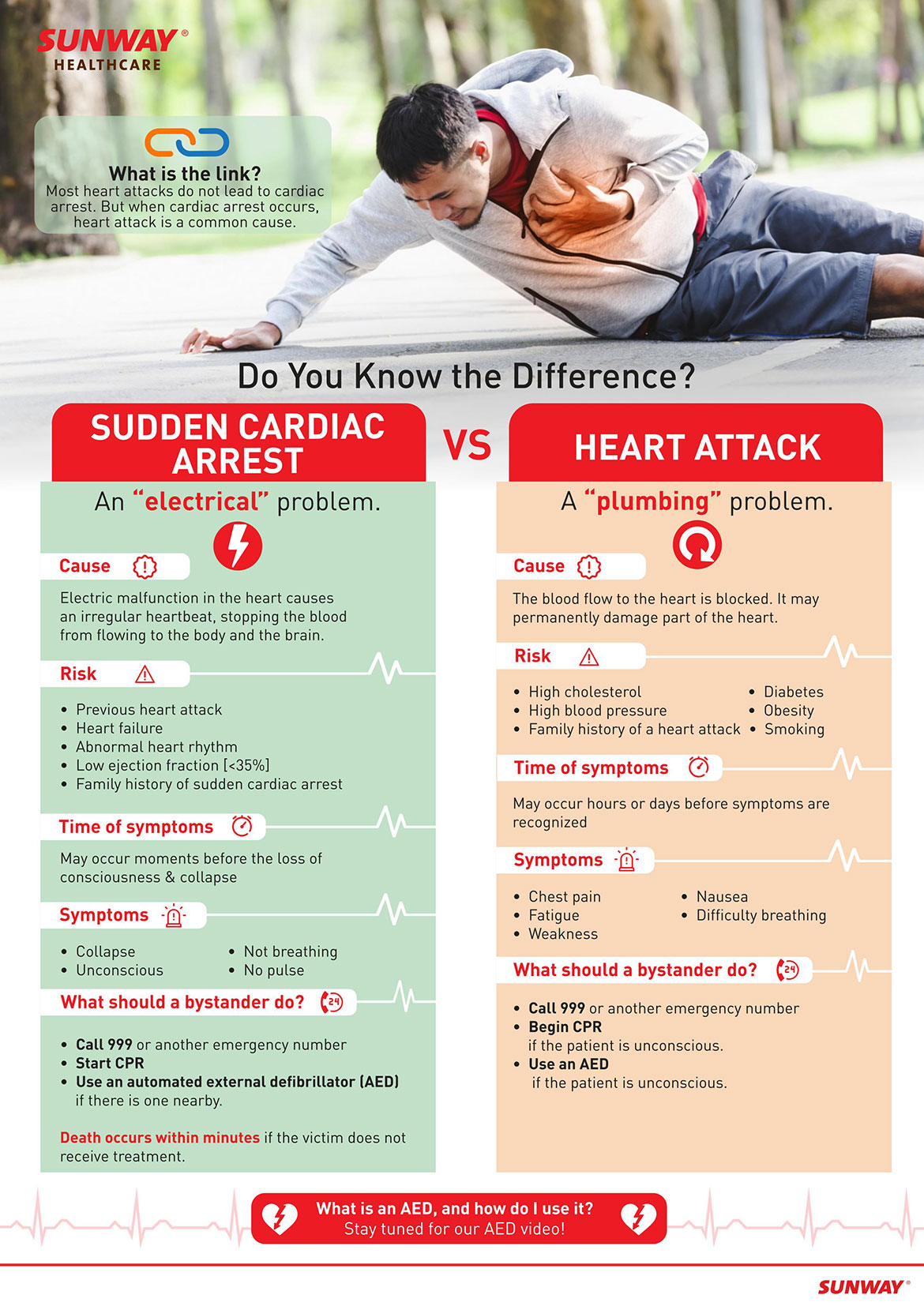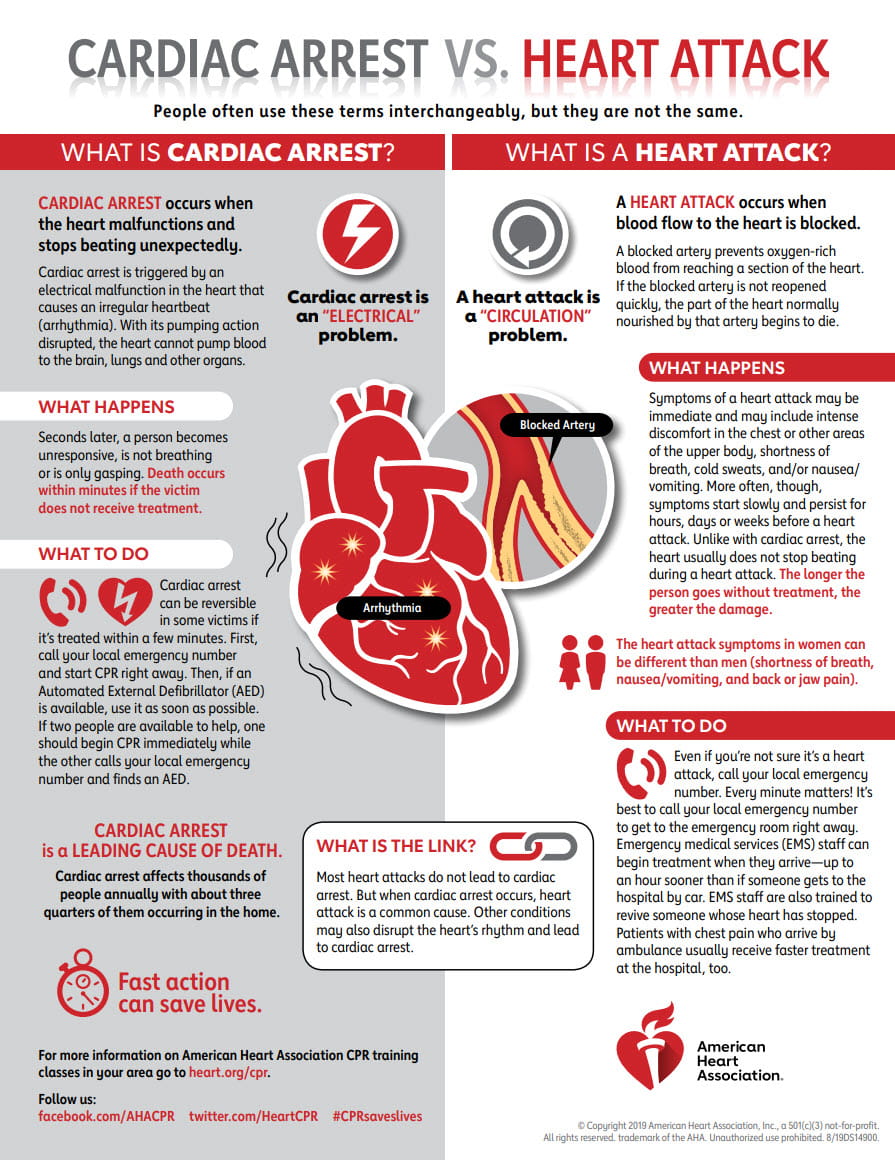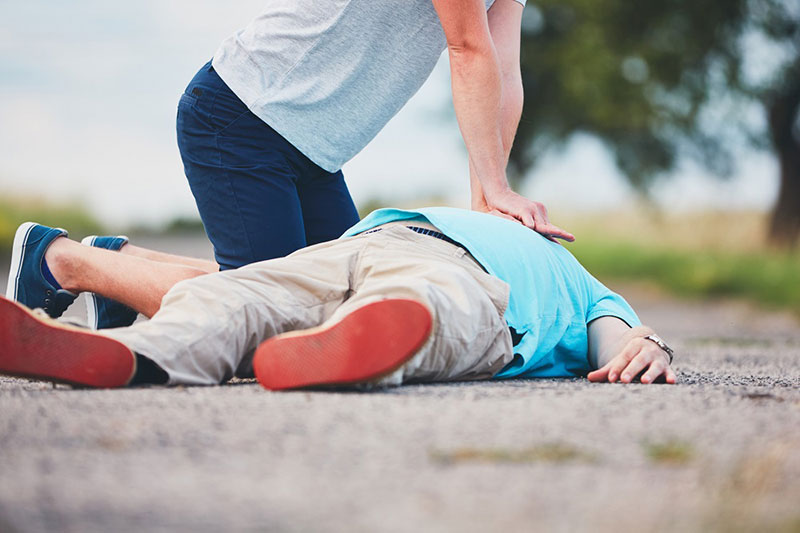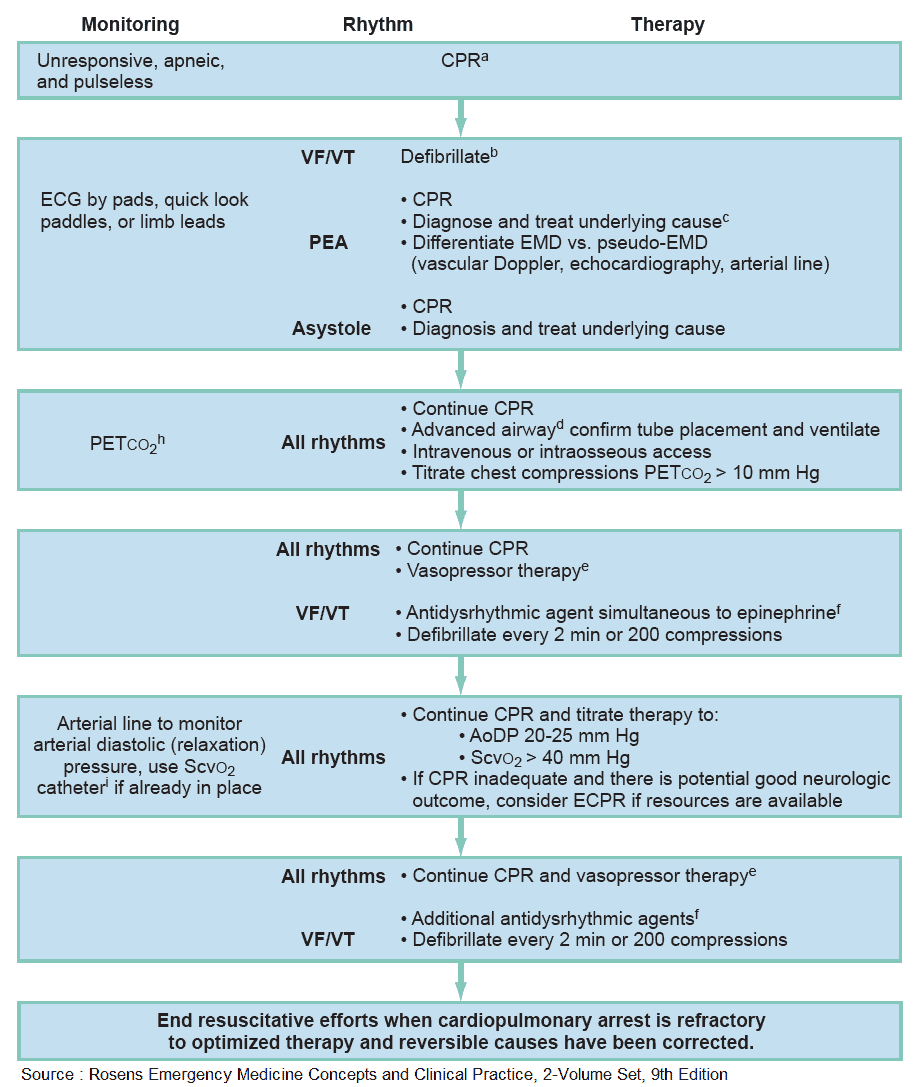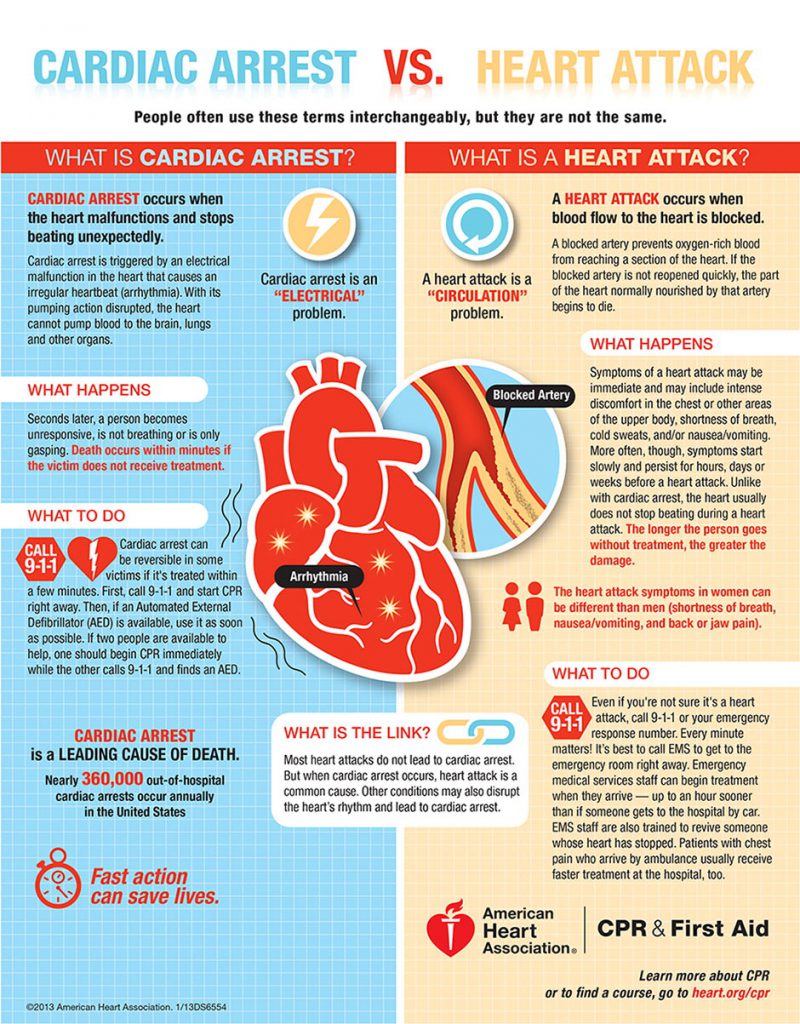Out Of This World Info About How To Deal With Cardiac Arrest

Screening for family history of sudden cardiac death.
How to deal with cardiac arrest. Giving cpr to a person who suffered from a cardiac arrest can increase their chances of survival. How is a cardiac arrest treated? Resuscitated cardiac arrest patients invariably develop severe metabolic and electrolyte disturbances.
Therefore, if you witness a cardiac arrest, call 911 immediately, and then start giving cpr until the emergency medical professionals arrive on the scene. Some types of cardiomyopathy, and rarely, conduction disorders such as long qt syndrome, can cause cardiac arrest during exercise or sleep. If you see someone collapse, check to see whether the person responds to shouting and tapping on their.
Sudden cardiac arrest (sca) is a sudden failure of the heart to pump blood around the body when it unexpectedly stops beating. Immediate cpr is one of the most important treatments to improve cardiac arrest survival. *how to deal with cardiac arrest.*
Collapse suddenly and lose consciousness (pass out) are not breathing or their breathing is ineffective or they are gasping for air do not respond to shouting or shaking do not. Screening those with a strong family history of cardiomyopathy and sudden cardiac. Avoid any rough handling of the victim as this.
Treatment for hypothermic cardiac arrest if the person is unconscious or having difficulty in breathing, call for an ambulance. Cpr and defibrillation should be given. Cpr is often performed until an automatic or external.
The magnitude of metabolic and electrolyte disturbance is. Cardiac arrest is not a proper heart attack but it leads to a person's death because of improper knowledge of steps to be taken to avoid loss of someone's life. A defibrillator will then deliver a controlled electric.
